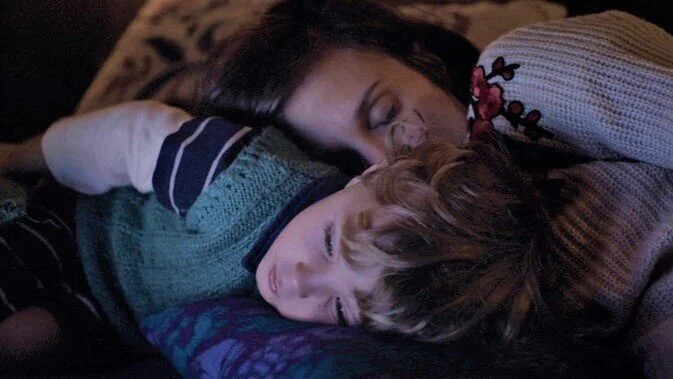Again Once Again
A highly original debut film looking at life from a female perspective.
There is a wonderful shot at the conclusion of this film which marks the debut of the Argentinian actress Romina Paula as both writer and director, the latter credit being one which she shares with Rosario Cervio. Born in 1979, Paula is also a novelist, a theatre director and a playwright but that final image, one open to interpretation but wonderfully resonant, is in itself proof of her skill in this new sphere. Equally successful in a different way are the many scenes in the film which, portraying everyday life, feature the central character, Romina (Paula herself), her mother Mónica (Mónica Rank) and three-year-old Ramón played by Ramón Cohen Arazi. This is filmmaking of rare naturalism. It draws on reality in that Romina's mother and son are played by her real-life mother and son but, since this is a film which blends fact and fiction and since everything is set up and conceived for the camera, these moments that seem utterly natural are in truth triumphs of art.
The setting for Again Once Again is Buenos Aires where Romina is visiting her mother at what is for her a time of mental crisis. Romina's husband (Esteban Bigliardi) has remained behind in Córdoba and she, now approaching forty, is not sure if her marriage is going to last. But two other issues add to her troubled state: she feels that whatever she decides now will set the course of the rest of her life and she is weighed down by the emotional demands of maternity (the intense love that she has for her son threatens to overwhelm everything else and also brings with it fear should anything bad befall him). Difficult as it is to define for herself what she really wants, Romina is helped by the sympathy and wisdom of her mother and also has friends to whom she can talk including Mariana (Mariana Chaud) and her sister Denise (Denise Groesman). There is even a mild flirtation with a young man, Pablo (Pablo Sigal), who is learning German from Romina prior to visiting Berlin.
Much of this I like immensely and I certainly welcome the way in which rather than relying on plot the film embraces everyday situations. The close relationship between mother and daughter could not be better portrayed. At intervals Paula offers passages in contrasted styles that are in contrast to this: we see slides accompanied by voice overs from Romina and also actual monologues delivered direct to camera against backcloths. In themselves these variations in style are acceptable, but in so far as they are used to express philosophical ideas I find them high-flown and not easy to grasp. Admittedly, certain aspects that emerge come over well including references to sexuality and to feminism in Argentina but other notions confuse more than they clarify. In that area I would include theories about time being fluid so that past and future merge in the present and attempts to elaborate the conflict within Romina's mind. This reaction may of course be a matter of taste and of intellectual capacity and other viewers may respond very differently. I would be dishonest if I did not admit that for me these elements were prominent enough to limit the effectiveness of the film, but even so they did not take away my admiration for those other aspects that I admired so much. I am glad to have seen Again Once Again and I would certainly describe it as a memorable film.
Original title: De nuevo otra vez.
MANSEL STIMPSON
Featuring Romina Paula, Mónica Rank, Ramón Cohen Arazi, Mariana Chaud, Pablo Sigal, Denise Groesman, Esteban Bigliardi.
Dir Romina Paula and Rosario Cervio, Pro Diego Dubcovsky, Screenplay Romina Paula, Ph Eduardo Crespo, Art Dir Paula Repetto, Ed Eliane Katz, Music Germán Cohen.
Varsovia/Cine Argentina/INCAA-MUBI.
84 mins. Argentina. 2019. Rel: 31 July 2020. Available on MUBI. No Cert.


